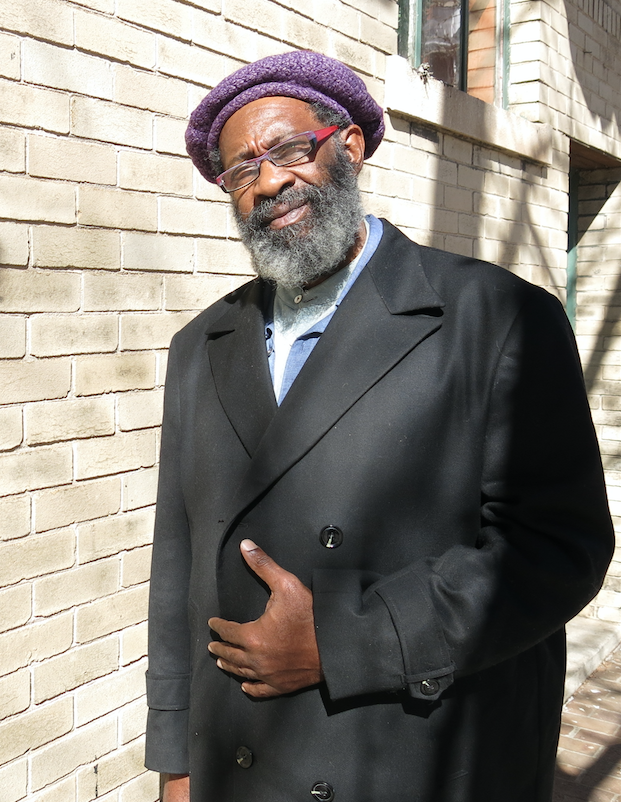A curious thing used to happen when activist, poet, retired therapist and chaplain Robert “Zack” Zachary shared parts of his life story with audiences. More often than not, a white member from the crowd would approach Zachary after the event and apologize. The response confounded the speaker. “I hadn’t presented any hard-luck story,” he says. “It had been a story of laughter and joy and how it really was.”
The remorse, Zachary determined, was the result of the predominant narrative and subsequent misunderstanding of the African-American experience. “It seems to be that whole thing of, ‘Oh, let us help these poor black people,’” Zachary explains, “when black people did not consider themselves poor in any sense of the word. We were very astute in what we were dealing with, and we had knowledge of how to navigate through it.”
Dull, tedious lectures and presentations, Zachary decided, would never be the catalyst for change. So, in 2015, he created the Dialogue Cafe. On Thursday, Feb. 22, Zachary will host the latest in his series. Titled The Eccentricness of Black Folk from a Black Perspective, the free event will take place at The BLOCK off Biltmore and will combine poetry, storytelling, music and conversation.
The multiple elements of the gathering reflect the many missions Zachary has for the series. One is to offer a more intimate look at history through personal anecdotes. Born in Anniston, Ala., in 1949, Zachary grew up in a civil rights environment. When he was a child, neighbors would gather in his family’s living room to read the Pittsburgh Courier. (Now defunct, it was once the country’s most widely circulated black newspaper.) By 11, he was an active participant in the local civil rights movement. At 15, he met Martin Luther King Jr., who arrived in Anniston after local leaders were hospitalized on account of their efforts to integrate the town’s libraries.
Much of Zachary’s earliest information stemmed from the Pittsburgh Courier. “Everybody read it, cover to cover,” he says. The paper not only reported on current events but highlighted historic moments and people within the black community. It also featured African history. “It had everything [you needed to know] in the black world,” he says.
In addition to the newspaper, Zachary remembers the role that his parents, the church and the greater community played in educating the town’s youths. “We were the institution of our own history,” he says. This concept is another goal for the Dialogue Cafe. The Eccentricness of Black Folk from a Black Perspective, says Zachary, “is basically an effort and a drive to reactivate and to reintroduce ourselves as black people into our own history. We wrote the history by living the history, and it is the proclamation that then we should teach our own history.”
The effort to reclaim, however, is not an attempt at exclusion. Rather, it is a chance for all members of the community to experience the past from a multitude of perspectives. The dialogue encourages audiences to share their own stories as a way to further examine the differences and similarities between accounts. “Those are the things that I like to pull back together in a dialogue and conversation,” Zachary says. “Not just for white people, not just for black people, but for everybody to come to an understanding of the humanness, the eccentricness, of who we are as human souls.”
While issues concerning race relations are major talking points and components of the dialogue, Zachary notes that the upcoming event addresses a multitude of other topics. Environmentalism, sexism and militarism are among the subjects he plans to explore. “I’m a student of Einstein,” he says. “I think everything is connected and relative.”
But race, racism and the steps required to eliminate the divide will be front and center. “America will never move an inch until she acknowledges [the past],” he says.
And this, too, is what Zachary believes the Dialogue Cafe helps foster. Through participation, audiences are pushed to hear each other and to see how their own experiences and actions impact others within their community. Resolutions might not be made, but that isn’t necessarily the point, Zachary explains. “The dialogue method helps to magnify the need for all of us to go back and do some studying. Because I’m not your teacher. I’m not going to look up this information [for you].”
Awareness and recognition, continues Zachary, is the only true path to a greater tomorrow. “What has haunted European Americans is denial,” he says. And that’s what history, when explored through a wider lens, works to eliminate. “It’s not about apologies,” Zachary says. “It’s about acknowledgement. Because when I acknowledge, that’s when it reaches my heart. That’s when it reaches my spirit.”
WHAT: The Eccentricness of Black Folk from a Black Perspective
WHERE: The BLOCK off Biltmore, 39 S. Market St. avl.mx/4ms
WHEN: Thursday, Feb. 22, 7-9:30 p.m. Free




Before you comment
The comments section is here to provide a platform for civil dialogue on the issues we face together as a local community. Xpress is committed to offering this platform for all voices, but when the tone of the discussion gets nasty or strays off topic, we believe many people choose not to participate. Xpress editors are determined to moderate comments to ensure a constructive interchange is maintained. All comments judged not to be in keeping with the spirit of civil discourse will be removed and repeat violators will be banned. See here for our terms of service. Thank you for being part of this effort to promote respectful discussion.